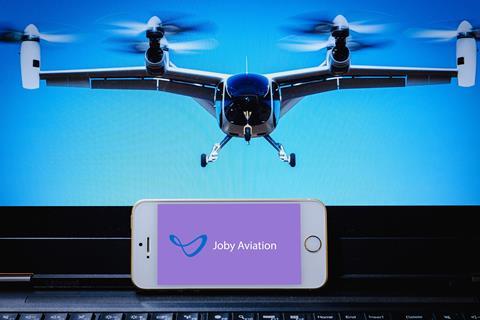Who should be legally responsible for ensuring that passengers in remotely-piloted flying taxis are not under the influence of alcohol or drugs? This is just one of a string of questions arising from the law innovations in ‘autonomous aviation’ covered by a Law Commission consultation paper published today.
Among the types of new aircraft covered in the 226-page paper are electrically powered highly automated vertical take-off and landing taxis. These are already being tested by companies such as Joby in the US, which plans to run a seven-minute shuttle service between New York’s JFK Airport and downtown Manhattan.
According to the Law Commission, such aircraft will initally be conventionally piloted. 'However, in time these are expected to be remotely piloted; eventually they may be completely self-flying.' This raises legal questions ranging from airworthiness certification to civil and criminal liability.
The consultation also seeks views on how commercial drones should be regulated. Issues here include liability for the torts of private nuisance and trespass.

Meanwhile major questions arise over compliance with the rules of the air, whicy currently assume a human pilot is on board. 'For example, a pilot can depart from the rules if absolutely necessary in the interests of safety. Should a self-flying aircraft be able to do the same?'
Announcing the consultation, Law Commissioner Nicholas Paines KC said: 'New forms of aircraft are becoming ever more prevalent. It is vital we get the legal framework right so that we can maximise the new opportunities in this field as safely and effectively as possible. We welcome views from anyone involved in this field before we come forward with detailed recommendations.'
The consultation is open until 27 May. Recommendations for law reforms will be published late next year following a second consultation on the impact of automation on air traffic management and air navigation services.
As for the problem of drunk taxi passengers: 'We provisionally propose that air operators (rather than the remote pilot-in command) should be responsible for preventing passengers from boarding: (1) who appear drunk or under the influence of drugs; or (2) whose carriage would, in the view of the operator’s employees, endanger the safety of the aircraft or other passengers.'
This article is now closed for comment.



























9 Readers' comments